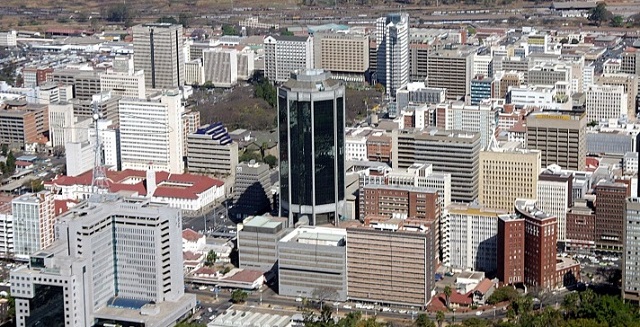
The Sunday Mail

Business Reporter
Listed companies say the country’s economic outlook remains favourable despite resurgent inflationary pressures and Covid-19-induced disruptions such as rising logistics and shipping costs, as well as delivery delays.
Several companies are continuing with recapitalisation and expansion plans on the back of improved aggregate demand in the economy.
Delta Corporation, the country’s biggest beverages manufacturer, believes “aggregate demand will remain firm”.
“There are indications that aggregate demand will remain firm largely driven by mining activities, Diaspora remittances and infrastructure developments. The business remains poised to exploit these opportunities,” Mr Matts Valela, the group’s chief executive, said in the company’s recent financials.
The company hopes Government will continue to implement progressive policies in line with the National Development Strategy (NDS1).
Similarly, packaging materials supplier Nampak expects a relatively less difficult second half of the year, but remains concerned about the obtaining macroeconomic challenges.
Nampak manufacturers paper, printing and packaging products, leases biological assets and the timber processing plant.
It also operates through segments in printing and converting, plastics and metals, and services.
In its half-year financials to March 31, 2022, the entire group’s operations traded profitably.
“The overall situation facing the economy remains fluid. We note with concern the recent significant devaluation of the official auction exchange rate and wait to see what impact this will have on prices and inflation,” Mr John van Gend, the company’s managing director, said in a commentary accompanying the results.
The packaging sector is considered as a barometer of economic activity, as sectors such as agriculture, beverages and edible oils require packaging.
The sector grew 35 percent growth in terms of volumes last year driven by increased demand that was experienced across all sectors of the economy, including horticulture.
On its part, First Mutual Properties (FMP) said the favourable economic outlook is expected to stimulate demand for quality real estate.
“We will continue to scout for opportunities within the market to further grow and differentiate our property portfolio by sector and location.
“Further, the Group will continue to invest in its existing portfolio in order to improve the long-term return profile. Various initiatives will be explored and implemented to sustain business operations and deliver favourable returns to its key stakeholders including the shareholders,” it said.
Likewise, the Infrastructure Development Bank (IDBZ) said notwithstanding the impact of Covid-19 on the bank’s financial performance in 2021, it remains optimistic projects under implementation will be completed in 2022, while more business will be underwritten under the bank’s private sector funding window.
IDBZ chairperson MrJoe Mutizwa said in support of Vision 2030, the bank has intensified work in primary sectors such as water and sanitation, housing, irrigation development, transport, and energy (“WHITE”).
In 2021, the bank made significant progress on projects under implementation, while the preparation of various projects towards bankability gathered pace.
“Of note is the significant progress that was registered in housing projects that were under implementation as well as energy projects under preparation,” he said.
The bank also continues to capacitate players in the infrastructure value chain, particularly irrigation development, manufacturing of construction materials, transport and health sectors in line with NDS1 and Vision 2030.
Finance and Economic Development Minister Professor Mthuli Ncube insists Government will continue to implement appropriate fiscal measures to bring down inflation, which usually affects pricing mechanisms and capital formation, stimulates speculative activities and leads to misallocation of productive resources, something that negatively affects the economy.



